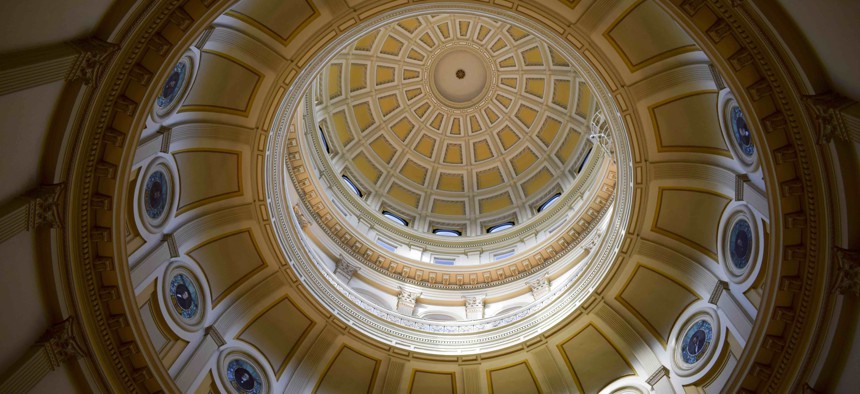Hike Taxes on the Rich to Pay for Education? Voters in this State Support the Idea, Survey Finds

The interior of the Colorado state capitol building. Shutterstock
The poll results come amid discussions about taxing wealthier Americans more at the federal level.
Most Colorado voters back the idea of raising state taxes on wealthier residents or corporations to help cover education costs, according to newly released poll results.
The survey findings are from the left-leaning Bell Policy Center, a Denver-based think tank. They show that 60 percent of voters agree with the statement that "it’s time to figure out how to raise taxes on the wealthy to provide more education, health and child care funding, so that everyone can afford the rising cost of living."
Thirty six percent of respondents disagreed with that position.
Meanwhile, 60 percent of voters surveyed said they back increasing taxes on the wealthy and big corporations to provide tax credits and subsidies to help families pay for early childhood education.
Fifty eight percent supported upping taxes on those groups to help provide free pre-school for all kids in the state.
Enthusiasm for those types of tax policies was sharply divided along partisan lines, with 91 or 92 percent of Democrats voicing support, compared to just 28 or 34 percent of Republicans.
The survey also found 54 percent of voters think they "pay the right amount in taxes" for the state services they receive and an additional 13 percent say "they don't pay enough in taxes" for those services.
These findings come as high profile Democratic lawmakers in Congress have floated the idea of raising federal taxes on the rich.
Massachusetts senator and 2020 presidential contender Elizabeth Warren has endorsed one such plan. Freshman U.S. Rep. Alexandria Ocasio-Cortez, of New York, has proposed another.
The proposals have drawn criticism from groups skeptical of higher taxation and others.
Last November, Democrats won a majority of seats in the Colorado state Senate, which left both chambers of the Legislature and the governor's mansion under the party's control.
Among other ambitious proposals, Gov. Jared Polis recently called for full-day kindergarten in his first budget blueprint. His administration believes rising property values will help cover the estimated $227 million price-tag of that plan without raising tax rates.
Colorado was one of 10 states, as of last year, to have a "flat" income tax structure, as opposed to one where rates rise progressively as earnings increase, according to the conservative Tax Foundation. In a ranking by the foundation that favors states with single, lower individual income tax rates, Colorado scored 14th-best in recent years.
There are a number of state policies the Bell Policy Center points to as restricting Colorado's ability to raise revenue, including a so-called "taxpayer's bill of rights" amendment voters approved in 1992.
The flat tax rate, the group says, is "the main culprit in the state’s unfair upside-down tax code, where the wealthier a person gets, the less they pay in state and local taxes as a percentage of their income."
Keating Research conducted the survey for the policy center. Findings are based on 600 phone interviews with active voters conducted between Jan. 8 and 13. The worst case margin of error is +/- 4 percentage points at the 95 percent confidence level.
Bill Lucia is a Senior Reporter for Route Fifty.
NEXT STORY: New Accounting Standards Could Disrupt Access to Financing






